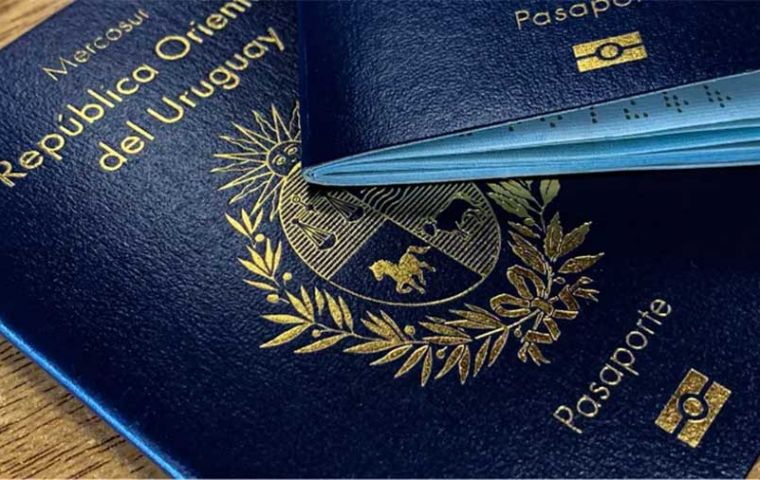MercoPress. South Atlantic News Agency
Uruguayan gov't under scrutiny over company chosen to print passports
 Garsų Pasaulis has been declared by Lithuanian authorities as “unreliable” and banned from future government contracts
Garsų Pasaulis has been declared by Lithuanian authorities as “unreliable” and banned from future government contracts Less than a week before its end, the Uruguayan Government of President Luis Lacalle Pou took heavy flak for awarding the printing of passports to a Lithuanian company Garsu Pasaulis, given its association with Belarusian businessman Viktor Shevtsov, who has been sanctioned by the European Union. The measure has raised concerns about the security and integrity of the country's identity system.
This relationship led Lithuania to cancel the contract with the company in 2024, fearing national security compromises. In Kyrgyzstan, Garsu Pasaulis caused a scandal by winning a bid for biometric passports for € 12 million, which subsequently led to an investigation on corruption charges. In Zimbabwe, the company was feared to have been involved in irregular practices in the procurement of identity document contracts.
An investigation by Lithuanian journalists has uncovered a web of controversial activities linking Garsų Pasaulis to the Belarusian holographic industry monopoly. In 2011, these entities jointly established in Lithuania the company GP Holographics, engaged in the production of holograms that have been used in documents destined for third countries. Among its shareholders is Shevtsov, identified as the right-hand man of Belarusian ruler Alexander Lukashenko.
Garsų Pasaulis Director Anna Janauskienė insists that all ties with GP Holographics were severed in 2022 after Russia's invasion of Ukraine. However, recent investigations suggest that Garsų Pasaulis transferred his shares in GP Holographics to Shevtsov through an intermediary. Both companies are still registered in Vilnius with the same address and share the same administrator and accountant.
Shevtsov currently holds 70% of the shares in GP Holographics, while 10% belongs to the Belarusian company Holographic Industry, and the remaining 15% is held by the latter's general director, Alexander Babarenko.
In addition, former Garsų Pasaulis CEO Vytautas Vainikonis was sentenced to two years imprisonment and a fine of up to €2.2 million for abuses of power, falsification of documents, large-scale credit fraud, and the legalization of illicitly obtained assets.
It is now feared that the agreement with the South American country could lead to the production of fake passports that could end up in the hands of criminal networks in Russia and Belarus, given that Garsų Pasaulis has been declared by Lithuanian authorities as “unreliable” and banned from future government contracts.




Top Comments
Disclaimer & comment rulesCommenting for this story is now closed.
If you have a Facebook account, become a fan and comment on our Facebook Page!